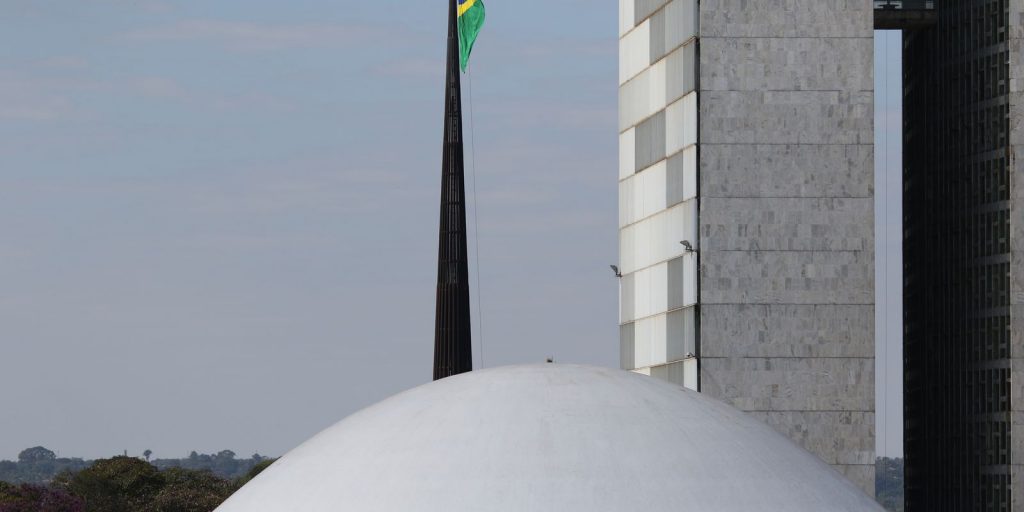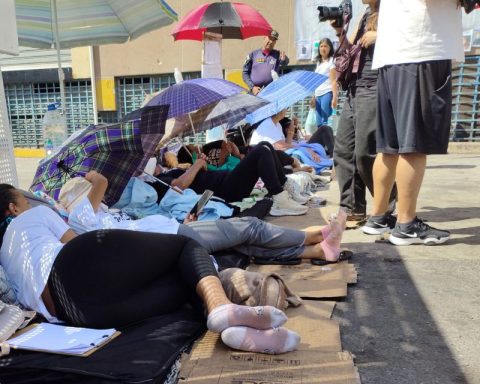
Senator Francisco Huenchumilla presented a substitutive indication to the Pardon project for the prisoners of the social outbreak, a correction that would convert the original project into an amnesty initiative. This action, in the words of the parliamentarian, is intended to “unlock” its processing in the Upper House.
“I am presenting a substitute indication that replaces the Pardon bill with an amnesty bill. I have legally simplified the project, in such a way that it does not require a quorum of organic law, and consequently with the articles presented, only 22 senators would be required for its approval”, Senator Huenchumilla advanced.
Along the same lines, the parliamentarian indicated that “I am discussing this indication and its foundation with the senators of the Constitution commission, and also with the senators of my caucus, the Christian Democracy and the opposition senators, so that together with the rest of the indications presented, we can seek a consensus on the matter and we can, hopefully, dispatch it in the course of this week”.
The DC legislator, in any case, indicated that he is coordinating the work with his fellow senators, because he is in quarantine due to close contact “despite the fact that my tests have come out negative (…) therefore I will not be able to attend face-to-face to the Constitution commission, and therefore I will not be able to vote”, he indicated.
In view of his situation, the senator indicated that he asked “the group of senators of the Christian Democrats to appoint a replacement for the Commission, for the purposes of voting on these indications that have been presented in the Commission.”
Specifically, the substitutive indication project —according to a minute provided by the parliamentarian himself— corresponds to an amnesty, which is defined in the document as “any legal measure that is taken by a State in the internal order through which it removes criminal character to some facts and, therefore, their authors and participants cannot be the subject of proceedings or receive any penalty on them”.
Regarding the reasons that would justify the application of amnesties in this and other cases, the minutes of the parliamentarian detail, citing law professors, that said resource is considered “a measure of benignity, which tends to calm down the spirits after periods of turbulence policy, or as an extreme means to resolve manifest imperfections of criminal law resulting in wrongful convictions.”
In this way, and finally, the substitute indication project to be discussed in the Senate Constitution Commission details a series of crimes contemplated in the Penal Code, the Law on National Monuments, the Code of Military Justice and Decree Law 2,460 (Law Organization of the Investigative Police of Chile), which have been perpetrated between October 7, 2019 and December 9, 2020.
After the date on which the Senate will vote on the project to pardon prisoners of the social outbreak was known, the elected Republican deputies, José Meza and Agustín Romero, expressed their refusal to approve this idea and argued that the concerns of the future Government and the Parliament must focus on the victims of looting and violence.
Meza, representative of the 9th district, commented on his dissatisfaction with the space that is being given to victimize those who would have violated business spaces or even public spaces in protest scenarios.
“It cannot be that a prisoner has privileged treatment only because of his political orientation and the victims continue to wait for an answer. Tomorrow’s vote is an example of the total disconnection that our political class in Congress is experiencing with the demands of the citizens,” he said.
Along the same lines, the parliamentarian-elect added that “we have seen a true tsunami of crime and violence in the first weeks of January and far from worrying about peace, and advancing in reforms of bills that will improve criminal prosecution, that they are going to protect the victims of these crimes, what Congress is looking for, and what the President-elect, Gabriel Boric, has asked for, is to advance in a pardon project”.
For his part, Romero, a parliamentarian from the 8th district, assured that “the Senate must have its sights set high and reject the pardon bill, which seeks to benefit people who committed serious crimes after October 18, 2019.”
“It is unpresentable to try to advance this initiative when we have criminals unleashed on the streets and every day we are having crimes of great social connotation. Justice has already spoken independently, and it would be a very bad sign for the public to free these violent activists,” he added.
Both legislators hope that “tomorrow the project will be rejected by the great majority of the Senate Commission and that this chapter will be finished, so that, from now on, we begin to worry about the real social emergencies of the thousands of families who do not they have found justice.”
It should be noted that according to figures from the Gendarmerie, there are 144 people who are in preventive detention for events related to the demonstrations of the social outbreak, and relatives hope that this pardon law will be approved.
On the other hand, deputy Giorgio Jackson, a member of President-elect Gabriel Boric’s team, a few weeks ago was with the National Assembly of Relatives of Political Prisoners of the Revolt, where he promised to withdraw the complaints under the State Security Law.

















